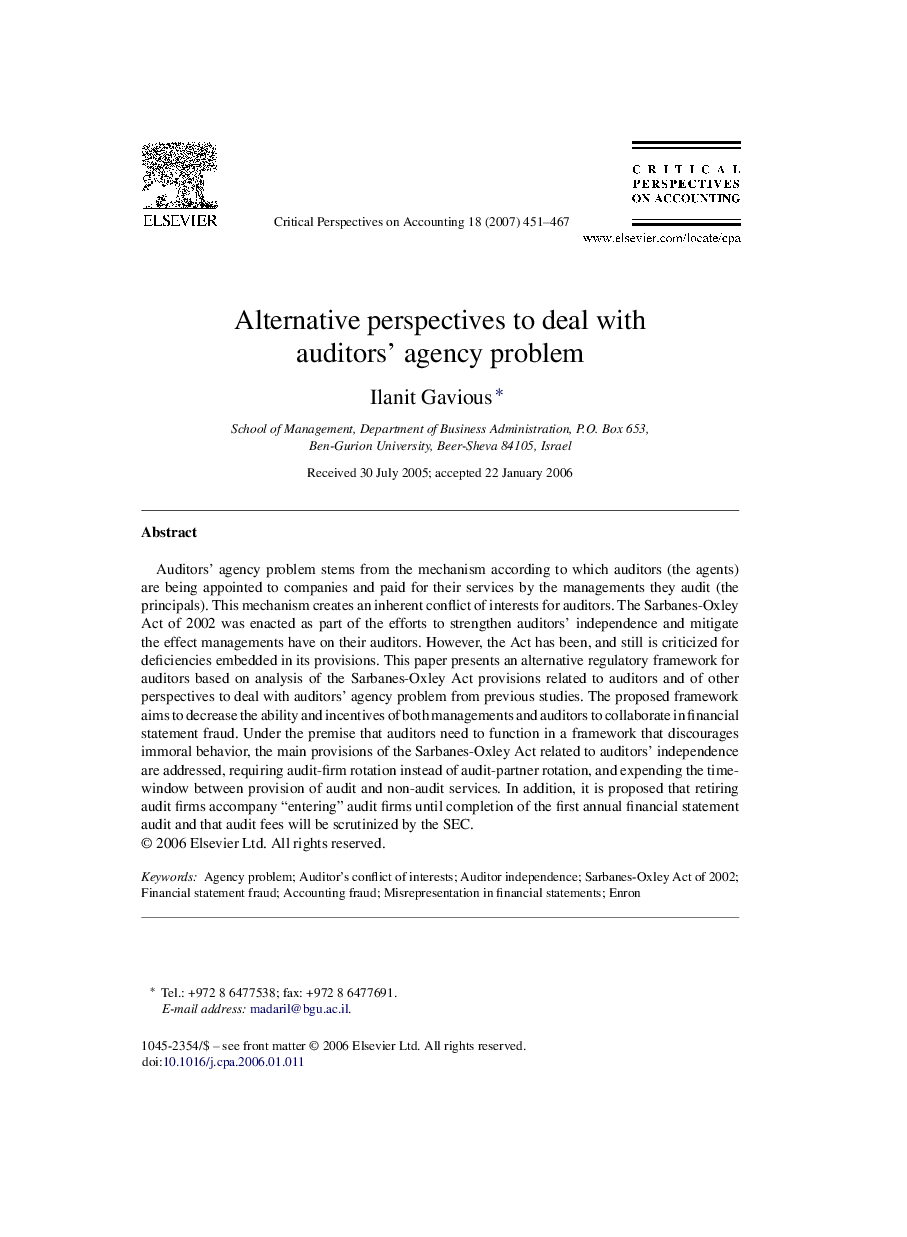| Article ID | Journal | Published Year | Pages | File Type |
|---|---|---|---|---|
| 1001118 | Critical Perspectives on Accounting | 2007 | 17 Pages |
Auditors’ agency problem stems from the mechanism according to which auditors (the agents) are being appointed to companies and paid for their services by the managements they audit (the principals). This mechanism creates an inherent conflict of interests for auditors. The Sarbanes-Oxley Act of 2002 was enacted as part of the efforts to strengthen auditors’ independence and mitigate the effect managements have on their auditors. However, the Act has been, and still is criticized for deficiencies embedded in its provisions. This paper presents an alternative regulatory framework for auditors based on analysis of the Sarbanes-Oxley Act provisions related to auditors and of other perspectives to deal with auditors’ agency problem from previous studies. The proposed framework aims to decrease the ability and incentives of both managements and auditors to collaborate in financial statement fraud. Under the premise that auditors need to function in a framework that discourages immoral behavior, the main provisions of the Sarbanes-Oxley Act related to auditors’ independence are addressed, requiring audit-firm rotation instead of audit-partner rotation, and expending the time-window between provision of audit and non-audit services. In addition, it is proposed that retiring audit firms accompany “entering” audit firms until completion of the first annual financial statement audit and that audit fees will be scrutinized by the SEC.
